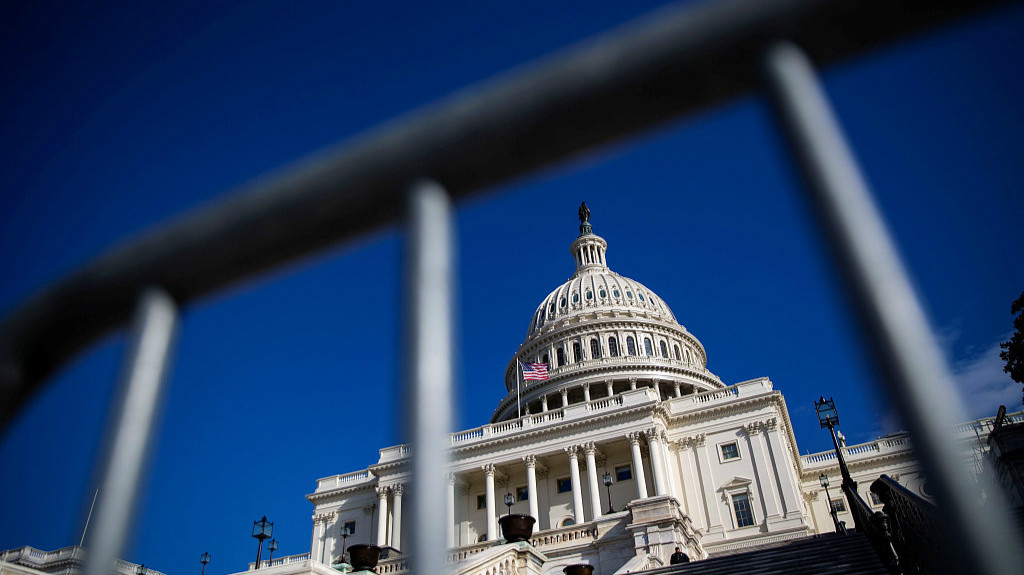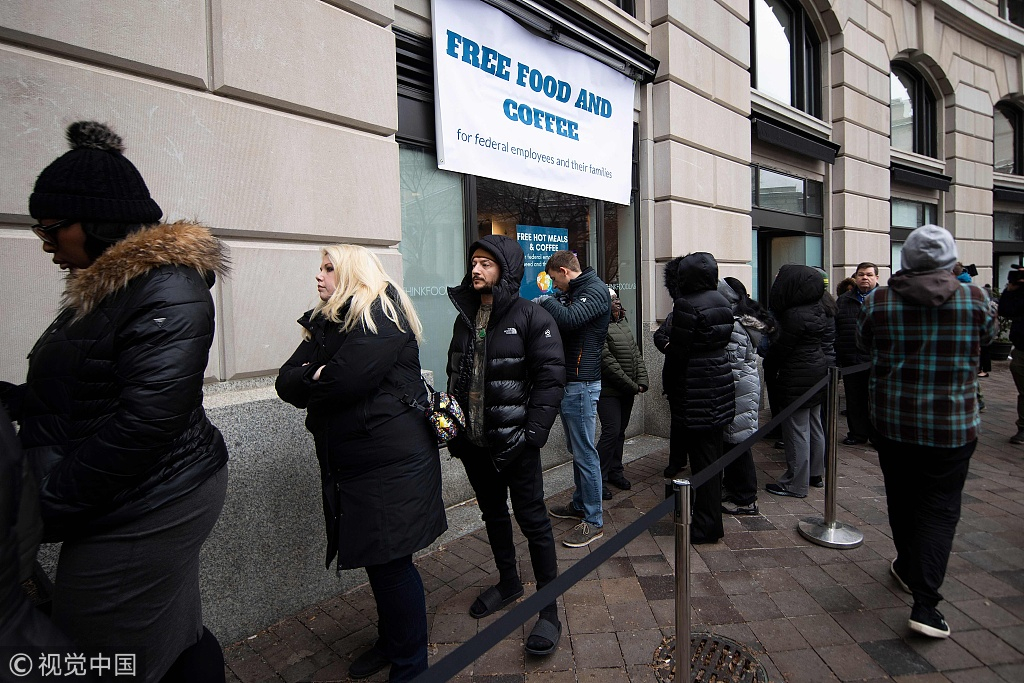
Opinion
21:00, 22-Jan-2019
The Heat: U.S. government shutdown starts to show trickle-down effects
The Heat

The most extended shutdown in the United States' history has reached the one-month mark. The Republicans and Democrats still locked each other in a situation where no compromise seems to happen in a short time.
Some 800,000 federal workers, many forced to work without pay, and millions more have been affected. The deadlock of the government shutdown may even hurt the country's economic growth.
The latest stalemate has only shown that things are getting worse. Just a week after U.S. President Donald Trump's unhappy meeting with House Speaker Nancy Pelosi, the president canceled her military transport. This is not a situation when the two parties are willing to make a deal.
According to Jonathan Broder, the senior writer with Newsweek, the shutdown is believed to have a ripple effect on the economy. Behind the 800,000 federal workers that are directly affected, the vendors and the whole global spending is contracted. As a result, the country's macro economy will be influenced.
01:06

No one is prepared to compromise now, and both the president and the Democrats are putting themselves into a corner. Eric Bolling, the host of Blaze TV's “America,” downplays the 800,000 people story and refers to them as “non-essential” workers. He focuses on the big picture that 5.7 billion dollars is a small amount of money comparing to the budget. The problem is a political football being kicked back and forth between Trump administration and the Democrats.
The independent journalist, Maria Pena disagrees with the opinion that the 800,000 “non-essential” civil servants are just a part of a sub-story. She believes that the problem is not just about the border wall funding, it is about the border security issue. There are many other ways to reach the goal. It was seen as an inappropriate allocation of the budget on building a wall from the opposition side. Therefore, it is not about the money, it is about how to use it.
Jonathan Broder also criticizes that the government is not focusing on the pain that the problem is brought about by the government shutdown, but merely look at minimal of the budget, which is a false comparison.
Nathan King, CGTN's Washington correspondent, also points out other inconvenience that the government shutdown casts on the broader social level. The farmers are unable to get a subsidized loan. The FHA mortgage is temporarily shut down. The trickle-down effects are definitely there.

Federal workers stay in line for a free hot meal at Andres in Washington, DC, January 16, 2019. /VCG Photo
Federal workers stay in line for a free hot meal at Andres in Washington, DC, January 16, 2019. /VCG Photo
Eric Bolling defends his opinion saying that the majority of the country is not affected much by the partial shutdown, and the budget will be covered by the Mexico government under a USMCA trade agreement. The deals will be negotiated upon a trilateral platform with U.S., Canada, and Mexico.
The USMCA agreement, however, is still undergoing a lengthy procedure of ratifying and approving in all three countries. As Nathan and Maria pointed out, there is a time inconsistency with the border wall problem and the USMCA payment—Trump wants the wall now, but the trade agreement will not be on effect in a short time.
Maria Pena suggests that the root cause of the immigration issue is the conflict in Honduras, Guatemala, and El Salvador. And Nathan agrees on the idea that if the peace is to be reached in the area, the U.S. may need to reevaluate its operations in the region. It should be seen as a regional crisis instead of a U.S. crisis.
The deadlock of the border wall issue is now hurting Trump's support. Polls show that the wall problem has caused a loss in Trump supporters. Eric Bolling agrees that the border wall problem has been a burden for Trump, but he also indicates that the wall is one of the important political promises that Trump wins his election with. This would let to a more thorny issue that both parties are unwilling to help with the other party's political commitments.
(If you want to contribute and have specific expertise, please contact us at opinions@cgtn.com)

SITEMAP
Copyright © 2018 CGTN. Beijing ICP prepared NO.16065310-3
Copyright © 2018 CGTN. Beijing ICP prepared NO.16065310-3